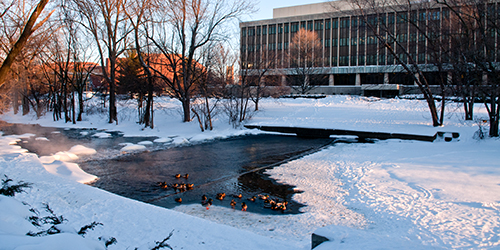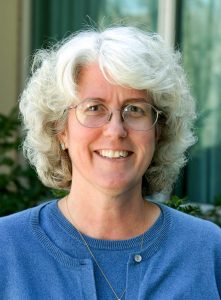 By Marilyn Amey
By Marilyn Amey
As we continue walking through the pandemic, as well as the strategic planning, and diversity, equity, and inclusion planning efforts during the next several months, it seems important first to take a step back, breathe, and realize that our work in its many forms – even if disrupted during this time – can be valuable and fulfilling. This month it felt important to focus on two aspects of the work in our collective community – both important and connected across many spaces. Research is at the core of our mission – to pursue problems and issues that matter locally and globally. The continued desire to both learn and teach has many seeking mentorship as a way to focus on specific career and learning goals, to network across colleges and institutions, and to pursue our desire for excellence within our respective fields.
Research
When discussing research and scholarship at a research extensive university, we might immediately think about externally funded grants leading to new findings that advance knowledge in many important domains. Our university mission also clarifies the need to pursue problems and issues that matter to the state, the nation, and the global community. Whether funded or not, these research and scholarly activities take many forms, and the more you get to know the breadth and depth of academic work at MSU, the more the far-reaching institutional impact is apparent. Those in the medical complexes, in the School of Music and the Museums, in STEM and Agriculture and Natural Resources, in Outreach and Engagement, in disciplines linked to state standards like Education and Social Work, and other academics across MSU, engage in work that is quite varied; however, each unit contributes to the collective university reputation and mission.
Recently, the breadth and depth of scholarly expertise are evident in how different academics turned attention to various constituents’ needs during the pandemic. Academics shifted to help those at MSU, in surrounding communities, and across the state to better handle virtual learning. Others invested time sharing knowledge about the impacts of the current circumstances on mental health-related concerns and developing ways of helping front-line workers. These are just some of the many ways colleagues contribute towards the university’s multiple missions and how we broaden the impact of our scholarship. Stories in MSU Today and other university communication outlets showcase academics pivoting their work to meet new and unprecedented needs.
Academics may have had to rethink their research agendas longer term as a result of the last several months, as well. Access to labs has been broadly affected, while other key aspects of one’s research such as financial resources, access to human subjects, ability to be onsite in domestic and international locations to conduct research, and just the challenges encountered in developing critical relationships virtually to collaborate or gain entrée for one’s work have been complicated if not stalled entirely by the pandemic. How to reposition oneself, one’s scholarly identity and the ability to reframe for others what research looks like is more than a rhetorical exercise but something we can collectively navigate to support the paths forward.
As we continue walking through the pandemic, as well as the strategic planning, and diversity, equity, and inclusion planning efforts during the next several months, it seems important first to take a step back, breathe, and realize that our work in its many forms – even if disrupted during this time – can be valuable and fulfilling. We may want and need to seek new partners, take a mental break to find the space to think anew or be in community with those who share similar interests, to find those whose passions align with ours in the research itself or the communities we aspire to serve. The university is rife with formal and informal opportunities to connect, some of which are listed below. If you can’t find what you’re looking for, please contact us in AAN and we’ll do our best to connect you.
- Outreach and Engagement
- Center for Interdisciplinarity
- Diversity Research Network
- Institute for Public Policy and Social Research
- The Vice President for Research and Innovation
- NCFDD – use MSU NetID email to set up an account and access information and training.
Mentoring
The new year brings the chance to think about new allies, collaborators, and networks to help accomplish our academic aspirations for 2021 – thoughts that tie to rethinking mentoring as relationships that support, inspire, and motivate. January is National Mentoring Month and a great time to take stock of the kind of mentoring we need and that which we can/do provide as individuals and as groups. In some ways, we have probably been mentored in unexpected ways during the last several months as we looked to others for support and knowledge sharing to navigate new instructional modalities, reframe scholarship, create learning pods for children learning virtually, help advisees prepare to job search virtually, and endless strategies to build community and stay connected while maintaining a safe distance.
Locally, the Work-Life Office offered numerous opportunities to learn together drawing on expertise from every corner of MSU, often including those not previously considered mentors in important aspects of our lives. Other opportunities such as Learning Communities, AAN and Lilly Fellows, Office of Research and Innovation workshops, drop-in coffee hours across campus, and write-ins by the Diversity Research Network and Outreach and Engagement provided space for reflection, conversation, and building relationships we come back to again and again for advice, feedback, and sharing ideas. Are these all mentoring? Some might immediately say “No” and refer to the traditional definition of a dyad between a more senior, experienced person and an “apprentice.” While accurate and sometimes quite effective, current definitions focus more on mentoring teams and groups: generative efforts that build mentoring cultures and capacities to bridge multiple needs, provide diverse perspectives and strategies, and truly build collective capacity. Mentoring rooted in principles of learning organizations means that we can turn to many places for knowledge we seek, that experts exist across academic roles and imposed structural hierarchies, and that together, we share responsibility for each other’s success.
There are many resources across campus for engaging in mentoring. Some resources include the “The Science of Effective Mentoring in Science, Technology, Engineering, Medicine, and Mathematics (STEMM)” from the National Academies of Sciences, Engineering, and Mathematics (NASEM). Focused on STEMM, this 2019 interactive online guide offers useful papers, programs ideas and strategies for effective mentoring applicable across disciplines. The Graduate School provides many tips and tools for mentoring graduate students as does the Diversity Research Network, National Center for Faculty Development and Diversity. Undergraduate research mentoring is actively supported through Undergraduate Research and Creative Activity. Other mentoring for students takes place in multiple forms. New initiatives such as the Circles of Success Mentoring Programs within APUE, MSU Connect that connects students with alumni, and, emeriti faculty often provide feedback on teaching, manuscripts, and other aspects of careers to academics, and multiple college-level programs also exist. Additional resources can be found on the AAN website and on specific college/unit websites.
At times, we all need to turn to others for trusted counsel. As 2021 and Mentoring Month unfold, we encourage you to look differently at how you are present for others in meaningful ways and at the opportunities through which you will find support and empowerment.


